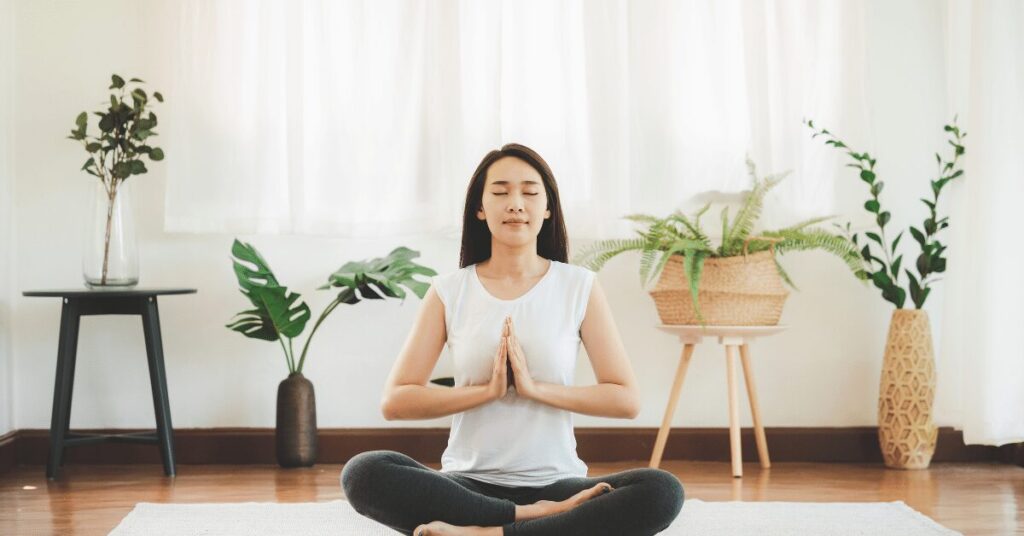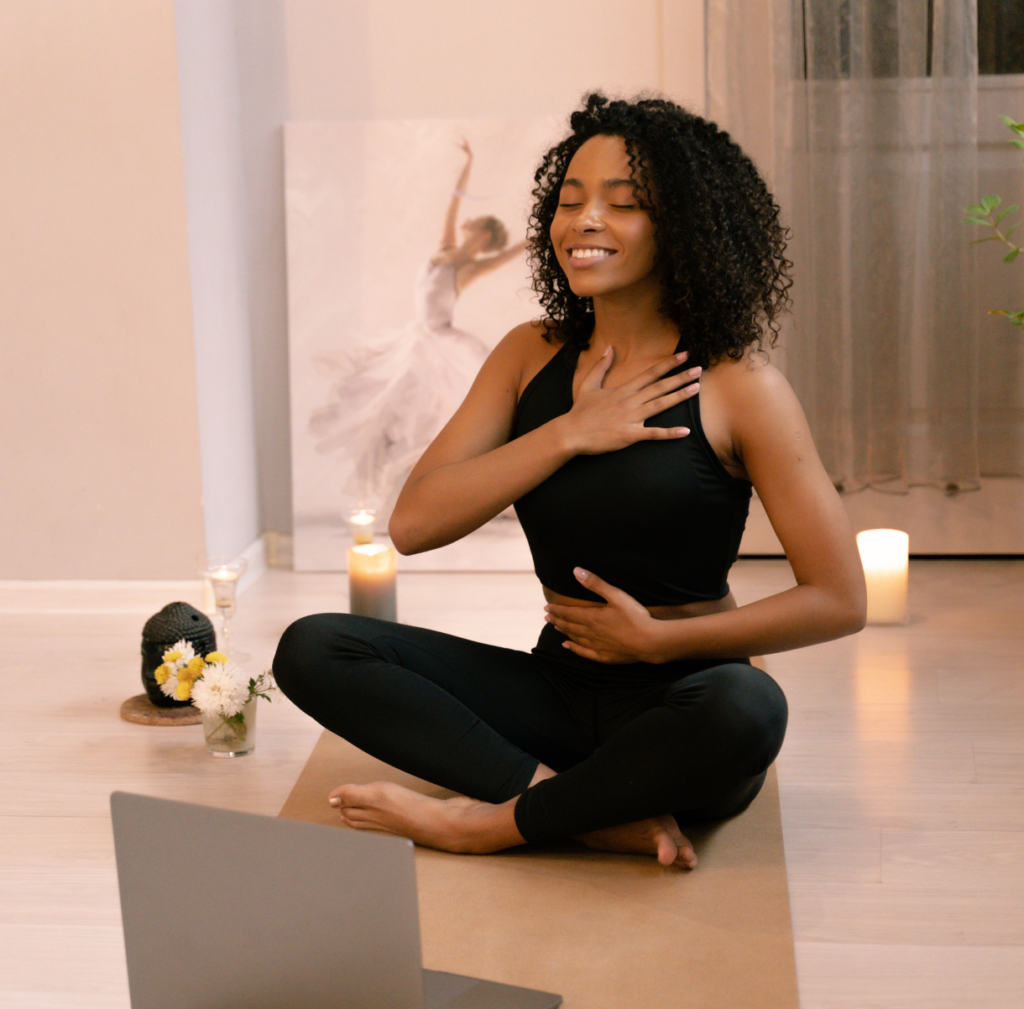Solitude. The mere mention of the word conjures up feelings of loneliness, isolation, and despair for some. However, when embraced intentionally, solitude can profoundly benefit self-reflection and personal growth.
Far from being a dreaded state, solitude offers a sanctuary from the ceaseless pace of modern life. It provides the mental clarity to engage in introspection, confront emotions, and gain perspective. Time spent alone can illuminate self-truths, foster creativity, and promote inner tranquility.

Understanding solitude as a tool for self-improvement empowers you to extract meaning from time spent in contemplation. With some effort, the skill of embracing solitude can be cultivated to enhance well-being and relationships.
Table of Contents
Reexamining Common Myths About Solitude
Before exploring solitude’s benefits, it’s important to dispel some common misconceptions that cause many to view spending time alone negatively:

- Myth: Solitude is the same as loneliness.
- Reality: Loneliness involves sadness from a lack of social connections. Solitude is voluntarily separating from others to enjoy your own company.
- Myth: Solitude means completely isolating from society.
- Reality: Solitude involves creating alone time amid normal social life. Isolation causes distress, but solitude is soothing.
- Myth: Solitude is passive non-activity.
- Reality: Solitude involves active introspection, creativity, and engagement. You direct your thoughts and activities mindfully.
Dispelling these myths allows you to approach solitude as a constructive choice for self-growth, not something negative to be avoided.
Key Benefits of Embracing Solitude
Embarking on the journey of solitude with an open mind unlocks numerous valuable benefits:
–Mental Clarity and Focus
Your mind gains clarity and focus when you distance yourself from distractions and pressures. This heightened concentration fosters problem-solving, encourages creativity, and facilitates effective planning.

–Emotional Regulation
Solitude grants the space to safely process emotions. By exploring your inner landscape, you understand your feelings, alleviate stress, and develop self-awareness.
–Self-Discovery
You can objectively examine your psyche, values, desires, strengths, and weaknesses without external influences. This self-inquiry leads to growth.
–Spiritual Connectedness
Silence allows connection with your inner self. Solitude provides time for spiritual activities like meditation, prayer, or reflection on life’s meaning.
–Creativity
With unfettered time, solitude ignites your imagination. Immersing yourself in solitary creative pursuits like writing, playing music, or painting stimulates innovation.

–Freedom and Autonomy
You experience total freedom on your own terms, away from others’ demands. Solitude provides a taste of personal autonomy.
–Rest and Relaxation
The serenity of solitude is deeply rejuvenating. Time spent alone resting, reading, or enjoying nature is profoundly renewing. It recharges your batteries.
–Improved Relationships
Solitude makes you more self-sufficient and less likely to negatively depend on others. It improves social interactions and relationships.
–Increased Productivity
With minimal distractions, solitude enables you to be highly productive and focused. You can achieve flow states and complete tasks efficiently.

Reframing solitude as an enriching experience highlights its multifaceted benefits. Far from something to avoid, time alone can uplift your life significantly.
Cultivating the Right Mindset for Solitude
To fully embrace and appreciate solitude, it is important to adopt certain perspectives that can help create an optimal mindset. Here are some perspectives to consider:

- View solitude as essential self-care, not an optional luxury. Just as you care for your body through rest and nutrition, solitude nourishes your mind and soul.
- Accept the initial discomfort that arises when you silence your outer world. Know that solitude’s benefits outweigh the unease.
- Release guilt or shame about taking alone time. Give yourself permission to make solitude a priority.
- Silence your inner critic undermining your need for solitude. Detach from those judgmental voices.
- Adopt an open, curious mindset about what you may discover rather than expecting solitude to conform to a fixed agenda.
- Practice patience and compassion with yourself as you learn to integrate solitude. Frustration is normal. Trust the process.
Adjusting your mindset provides the optimal foundation to extract solitude’s gifts rather than viewing it as intimidating. Give yourself full permission to spend time alone mindfully.
Creating the Necessary Space for Solitude
Crafting a suitable environment is key to experiencing the benefits of solitude. Here are six ways you can prepare your environment and time:

- Designate specific solo time in your schedule, starting small if needed. Treat this time as any other important commitment.
- Select a peaceful location providing physical and mental calm, whether in nature or a private room. Make comfort a priority.
- Alleviate external pressures by managing other duties beforehand and informing others you are unavailable.
- Minimize potential distractions by turning off devices, screens, and sounds. Remove distracting objects from your space.
- Establish boundaries by politely declining social invites during solo time. Stand firm if others pressure you.
- Make time for gradual transitions back into normal rhythms after solitude to avoid jarring your sense of calm.
Once you intentionally set up a space catered to introspection, you can fully immerse yourself in solitude without disruptions.
Developing Key Skills to Enhance Solitude
Solitude can provide a powerful opportunity for personal growth, but its effectiveness can be increased by cultivating specific skills and practices.

For example, developing self-awareness through mindfulness meditation can help individuals better understand their thoughts and emotions. This allows them to identify areas for personal improvement. Similarly, practicing self-reflection through journaling or introspection can help individuals gain deeper insights into their values, goals, and beliefs.
Also, effectively managing time can help make the most of solitary moments. Which in turn will allow you to focus on personal growth without distractions. By developing these and other skills and practices, individuals can unlock the full potential of solitude and experience significant personal growth.

Here are six more skills that can help to enhance personal growth during solitary moments:
- Expressive Writing: Free write about issues without censorship to process feelings. Destroy entries later if desired.
- Creative Pursuits: Solitary creative outlets like writing, art, or music aid self-expression and problem-solving.
- Tune into Your Intuition: Listen to messages from your inner voice about passions, emotions, and desires.
- Life Review: Assess your life path—what went well, what needs change, and what is your future direction?
- Envision Your Best Self: Imagine your highest potential. What steps could make this vision real?
- Connect with Nature: Spend mindful time alone outdoors. Nature restores mental clarity.
Using these practices deliberately enhances solitude’s potential for inner growth exponentially.
Overcoming Common Solitude Struggles
Even solitude enthusiasts encounter roadblocks. Being aware of typical challenges allows you to troubleshoot them. Here are some of the more frequent challenges and how you can overcome them:
- Boredom: Have inspirational material ready. Shift to an absorbing hobby if boredom persists.
- Restlessness: Breathe through initial discomfort. Inner calm emerges if you stay through restlessness.
- Negative Thoughts: Gently return focus to the present moment when worries hijack solitude.
- Loneliness: Reflect on whether you need more social time or deeper one-on-one connections. Seek balance.

- Lack of Direction: Outline reflection topics beforehand so your alone time feels meaningful.
- Technology Distractions: Turn devices off or leave them elsewhere. Don’t let them derail focus.
- Negative Self-Talk: Replace inner criticisms with encouragement. Limit self-judgment.
- Guilt: Recall solitude’s benefits. Give yourself full permission to take this time.
- Safety Concerns: Choose safe public spaces if anxiety hinders solitary walks. Don’t force yourself into unsafe situations.
- Difficult Emotions: Use healthy coping strategies to process painful emotions constructively.
- Over-Isolation: Avoid total isolation. Check-in periodically with loved ones to stay balanced.
Anticipating challenges allows you to navigate them smoothly and stay the course. Adjust your approach when needed.
Integrating Solitude into Daily Life
Weaving solitary practices into your routine sustains the benefits long-term, here are seven practices to try:

- Schedule regular solo time on your calendar, starting small. Treat this time as precious.
- Create helpful rituals around your solitude to ingrain it deeply. For instance, follow morning meditation with journaling.
- Take periodic mini-retreats of half-days or full-days alone to restore perspective.
- Practice mindfulness during daily tasks like driving or chores. Tune into your senses.
- Spend time in nature daily, even for 10 minutes. Outdoor walks provide instant calm.
- Wake up early before others. Savor the quiet to reflect and prepare for your day.
- Incorporate solitary hobbies like gardening, puzzles, photography, or knitting that require immersive focus and attention. These activities reinforce the mindset of enjoying your own company.
Weaving solitary practices into your daily lifestyle sustains the benefits long-term. Soon, you may crave time to think, restore, and be alone.
Maintaining Balance
While solitude can benefit self-reflection and personal growth, an excessive amount of it can lead to loneliness and social isolation. It is important to balance spending time alone and engaging in social activities.

One way to achieve this balance is by setting aside specific times for solitude and others for socializing. Engaging in activities that bring joy and fulfillment, whether through hobbies, exercise, or spending time with loved ones, is essential. By finding a healthy balance, one can reap the benefits of solitude while maintaining meaningful connections.
The following are important things to remember when reflecting on your personal growth journey alone:
- Monitor for warning signs: Declining social interest, irritability, or depression may signal you need more human interaction.
- Do periodic check-ins: During the solo time, pause to assess if you need a social break. Take your time with solitude.
- Share insights: Verbalizing revelations from solitude helps you process them and connects you to others.
- Learn to “stop being alone”: If solitude causes imbalance over time, reengage with uplifting people and activities.
- Limit social media: Social media provides pseudo-connection. Limit use to motivate developing real relationships.
Aim for equilibrium between solo time and social time. Incorporate both in proper proportions tailored to your needs.
Conclusion
Seneca the Younger wisely stated, “I never come back home with the same moral character I went out with.” Exploring the inner landscape that solitude reveals provides opportunities for profound personal transformations.

By dispelling myths about being alone, embracing solitude’s gifts, and integrating it into your lifestyle, you open the door to heightened self-awareness, creativity, clarity, and joy. Allow time spent in contemplation to illuminate your inner light.
The key to mastering solitude is patience. Invest regular, quality time alone. Honor the process of settling into stillness. You will uncover poignant truths about your inner workings when you give yourself the gift of solitude. Soon, your mind will look forward to solitary periods as refreshing springs along your journey.
Live Your Life & Love It!
Related Article: Discovering Your Best Self: A Journey of Personal Transformation
FAQs
Can solitude be useful for personal growth?
Yes, solitude can absolutely be useful for personal growth. Time spent alone provides space for self-reflection and introspection without external distractions. This allows you to gain clarity, process emotions, tap into creativity, and gain self-knowledge, leading to growth.
What are the benefits of embracing solitude?
The main benefits of embracing solitude are mental clarity, self-discovery, creativity, emotional regulation, relaxation, productivity, freedom, and spiritual growth. Time alone lets you tune into your inner self.
What is the meaning of embracing solitude?
Embracing solitude means purposefully and positively spending time alone to enjoy your company. It is time set aside for self-care through self-reflection, creative pursuits, relaxation, or spiritual practices.
How do you embrace solitude?
You can embrace solitude by scheduling regular alone time, minimizing distractions, creating a peaceful environment, engaging in solitary hobbies, and adopting a mindset that values the benefits of time spent solo.
How do you reflect in solitude?
Reflection during solitude involves:
– Asking yourself introspective questions.
– Doing expressive writing.
– Reviewing your life path.
– Envisioning your best self.
– Tuning into your inner voice and intuition.
It means silently examining your thoughts, values, emotions, and life direction without outside influences.
Disclaimer
Disclaimer:
The information provided in this article is for educational and informational purposes only and is not intended as medical advice. The content is not intended to be a substitute for professional medical diagnosis, treatment, or advice. Always seek the advice of your physician or other qualified health provider with any questions you may have regarding a medical condition. Never disregard professional medical advice or delay in seeking it because of something you have read in this article.
If you have a medical emergency, call your doctor or emergency services immediately. The author and publisher of this article are not responsible for any specific health or allergy needs that may require medical supervision and are not liable for any damages or negative consequences from any treatment, action, application, or preparation, to any person reading or following the information in this article.









